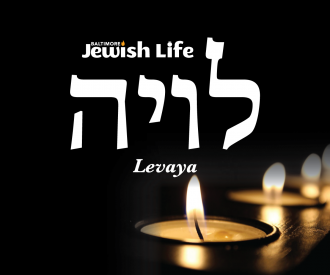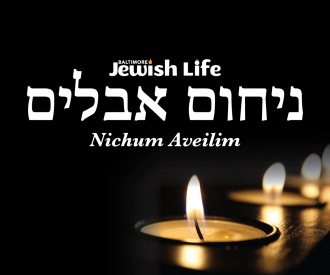One of the greatest gifts we received as a nation is teshuva, the ability to repent for our sins. Requisite to repentance is the need to admit with utter honesty and awareness our having sinned and our commitment to change, by expressing וידוי, confession. This most significant tool is placed in the context of the sin of one who had stolen and sworn falsely to his innocence, who when seeking to rectify this sin must make monetary amends, bring a sacrifice and confess his sin. It is from here that we derive to all other transgressions in the Torah the need to say vidui in order to affect atonement.
Why of all transgressions is this one selected as the paradigm for confession?
The Baal HaTurim points out how immediately prior to this discussion the Torah directs us to expel from the camp those contaminated by tzaraas-leprosy, zav-emission, and the human corpse. These impurities reflect on the sin of the snake who was afflicted with leprous-like skin, the failure of Chava who would now be plagued internally by a monthly impurity, and the blunder of Adam who is now doomed to the dross of mortality. He further points out how directly afterward; the Torah describes the Sotah, the wayward wife being suspected of betrayal, who is reminiscent of the snake who ‘cavorted’ with Chava. In similar fashion to the guilty Sotah whose ‘thigh collapses’ upon drinking the bitter waters, the snake too, loses his former legs. Finally he points out that the laws of the Nazir which follow, extols the need to withdraw from the historical ‘forbidden fruit’ that Chava and Adam partook from, which according to many opinions was the grape, in restoring equilibrium to the world once again.
Evidently there is something of cosmic import embedded in this section.
There is one more piece to this puzzle. Sandwiched between the law of vidui, are two verses that allude to the various tithes, separations and gifts showered upon the members of the tribe of Levi, the kohanim who serve in the Temple.
The verse states, ואיש את קדשיו לו יהיו (במדבר ה י), a man’s holies shall be his. The simple message here is that the gifts that are bestowed on the kohanim are their’s to keep.
Rashi however brings an alternative reading on this verse.
The very next verse talks about the disloyal wife who secludes herself with a man other than her husband. Why is this discussion adjacent to the requirement to give the appropriate gifts to a kohen ?, Rashi asks. He answers, to teach us that if ‘a man’s holies shall be his’, meaning that he keeps the holies to himself and avoids the kohen to whom it is due, will find himself having to bring his wayward wife to the kohen who will administer the bitter waters to determine her guilt.
What connection is there between the sin of withholding one’s taxes and his wife acting out immorally? Is she doomed because of the sins of her husband?
Perhaps it is not a punishment but a consequence. One who creates an environment of cheating to ingratiate his hunger for wealth will breed that behavior among the members of the household, discovering that his wife too will resort to duplicity in meeting her selfish needs.
But it is much deeper than that.
Rashi brings another angle on the same verse. A man’s holies shall be his, Rashi instructs, refers to the giver, emphasizing that although these items are inherently the property of the kohen, the Torah nevertheless gives the presenter the טובת הנאה, the privilege to choose to give it to whichever kohen he desires, so as to engender ‘good will’.
When a person gives of his own resources to another, no matter how altruistic the gift may be, it nevertheless comes with a debt. The receiver inevitably feels indebted to the sacrifice of the giver. Additionally, the giver too is challenged with a sense of paternalism that comes with giving, at times motivating the giver to feel superior to the recipient at best, or perhaps feeling entitled to allegiance from the beneficiary at worst.
In all relationships whether the mode of exchange is material, physical or emotional, the challenge we face is how careful we are to ‘give’ without creating entitlement nor indebtedness. It is these ingredients that creep into our personal interactions that wreak havoc, generate anger and ultimately division.
Perhaps it is in the model of the gifts to the kohen that educate us in fine tuning this skill.
One who offers the kohen the gifts Hashem instructed us to, can never feel entitled because it is not generated by one’s desire but rather by the Torah. It is not ‘ours’, but rather Hashem’s, Who privileges us by directing us to distribute them to His proxies. By giving us the opportunity to focus on the good will we create by displaying our regard and appreciation to those we choose to, we are creating a bond that is free from entitlement or indebtedness.
One who steals from another is often prodded by a sense of self-righteousness that he deserves it more than his victim, convincing himself that it’s an unfair world with assets distributed unfairly.
That flawed attitude will transfer into all areas of life. If a person can steal from the kohen he can most certainly not give credit or credence to those in his orbit that offer kindness, never sensing appreciation for their dedication and care. His lack of regard for those closest to him stems from his being caught up in a flood of self-importance and expectations of loyalty from those he takes under his wing, blinding him to the generosity of others.
A spouse who is never appreciated will stray to the arms of those who will provide her need for validation.
The jealous snake felt he deserved Chava. He played on her vulnerabilities since she felt underappreciated, as indeed we are taught that Adam was כפוי טובה, ungrateful of the gift he received, as indicated in his instinctive reaction when confronted by Hashem as to why he sinned by blaming the ‘woman You gave me’.
If we would only view all our assets, talents, charm and intelligence as belonging to Hashem and graciously entrusted to us to utilize in creating ‘goodwill’ amongst ourselves, we will succeed in returning to the ‘Garden of Eden’ in our lifetime.
באהבה,
צבי יהודה טייכמאן















